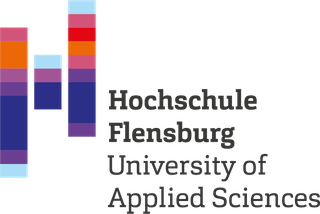European Policy Statement of Flensburg University of Applied Sciences.
Like every university and in principle every educational institution in Germany, Flensburg University of Applied Sciences deems internationalisation as one of its core tasks. The university has also anchored this in its mission statement adopted in 2018. However, being a relatively small university, FUAS has focus on certain regions, topics and activities. Determined by the size, the nature of its students, the focus on Applied Sciences and the general status quo of internationalisation of the university, our strategic goals of internationalisation and thus also of our participation in the ERASMUS programme are:
- Substantially increasing Internationalisation at Home
- Deepening and intensifying level of collaboration in existing partnerships
- Sharpening the profile of the institution by practice-oriented collaboration in Emerging Markets
- Increasing the diversity among our students, staff and lecturers
- Increasing the use of joint web-based teaching and learning with partners
The University has already made quite some progress in realising these goals. We have seen a huge increase in international activities at all levels over the past decade. In 2015, the percentage of foreign students was 4.03%, the number is currently at 8.23%, which means the university doubled the share of foreign students in only four years. Today, the university has over 60 partner universities worldwide, with most of these being in the European region, but with an unusual high number of partner universities in emerging and developing countries. This is attributed to the fact that the fields of expertise at our university such as Renewable Energies, IT / ICT and Media, Logistics, Process Engineering, etc. have proven to be crucial for emerging and developing societies and markets.
Most of our ERASMUS+ funded partnerships have been limited to mobility. For the years 2021-2027, the university aims at expanding these activities to serve in the fulfilment of the above-mentioned goals. The participation in the ERASMUS programme is thus fundamental to the strategy of the university.
In terms of our above-mentioned goals, we expect ERASMUS to help the university:
- to increase the number of students, staff and lecturers from abroad that come to Flensburg and increase the cultural diversity on campus as well as to incentivize the university as an administrative unit to become more international by increasing the number of modules taught in English, increase the sensitivity for the needs of foreign people on campus and broaden the experience of those who can for whatever reason not participate actively in mobility programmes themselves
- to deepen the existing strategic partnerships by making them accessible to all faculties. This requires an increase in the recognition of modules in all study programmes which will help the university to open up even further. It will also include those members among students, staff and lecturers that have not yet been able to engage in international activities as much as would be beneficial.
- to attract more funding and interest in the collaboration with partners in Emerging Markets. The university has defined Emerging and Developing Markets as a focus areas of its international strategy as the university sees a great potential for knowledge transfer and cooperation on eye-level for student, staff and lecturer exchange and for joint projects. Major companies indicate a growing interest in graduates who are experienced in emerging markets as these can be easily employed in projects and locations.
- to make the university more accessible and inclusive for people from diverse backgrounds, such as people with disabilities, people from the LGBTQI community, refugees and students that are first generation academics. We have seen that internationalisation and the activities that come with it such as setting up support structures, specific tutoring and mentoring as well as counselling are beneficial not only to incoming or foreign people but likewise for these target groups. Furthermore it helps grow tolerance and acceptance among university members as well as our partners and guests.
- to increase the use of web-based technologies to help with all internationalization efforts. The year 2020 has also taught us that the use of web-based teaching and learning is indispensable for the resilience and accessibility of universities. Virtual mobilities, e-learning across country borders and joint projects have been part of FUAS collaboration with African partners for many years already. The university seeks to increase the activities and to extend it to its European partners by investing in technology and connecting curricula with partner universities via e-learning to increase on internationalization both qualitatively and quantitatively.
